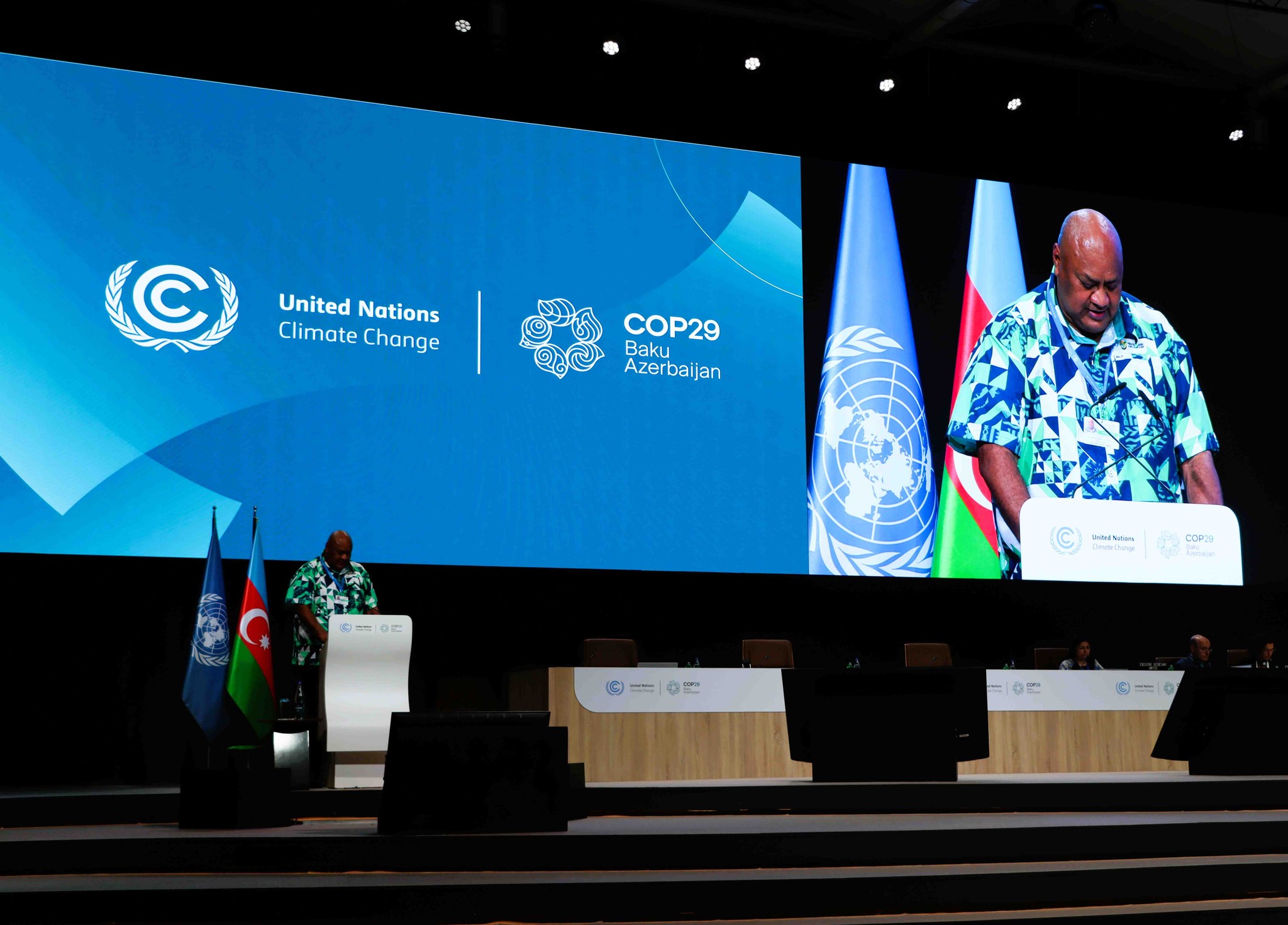In a powerful call to action at COP29, Sefanaia Nawadra, Director General of the Secretariat of the Pacific Regional Environment Programme (SPREP), stressed the urgency of reaching a meaningful climate agreement to protect the future of Small Island Developing States (SIDS).
Speaking from the High-Level Segment in Baku, Nawadra emphasised that the stakes for the Pacific are nothing short of survival.
“I remind us of the urgency of our mission for 1.5 to stay alive and to continue to thrive, in solidarity for a green world. What we do here determines the world we leave our future generations.
“For Small Island Developing States these negotiations are existential and we cannot afford to leave any stone or barrier unturned,” he said.
Nawadra placed a spotlight on the New Collective Quantified Goal (NCQG) for climate finance, urging that it must address the unique vulnerabilities of SIDS.
“The success of this COP depends on our determining the New Collective Quantified Goals.
“The NCQG is not merely a climate investment target; it is fundamentally about enabling us as the most vulnerable to have easy access to the long-term resources and financing necessary to address the impacts of climate change that we are experiencing now and will increasingly experience into the future,” he said.
He expressed frustration over efforts to dilute the special status of island nations by introducing broader references to other regions.
“I express my deep concern over the dilution of the special circumstances of SIDS through the introduction of new language and additional references to other regions within the NCQG, which are inconsistent with the foundations laid in Rio and principles of the Paris Agreement. The establishment of the NCQG must encompass adaptation, mitigation, and loss and damage, while also providing for readiness, capacity building, and technology transfer,” he stressed.
Reiterating the urgency of limiting global warming to 1.5°C, Nawadra called for COP29 to deliver a package that prioritises the 1.5 target and paves the way for a just transition to a fossil fuel-free future.
“A COP29 package must ensure that the 1.5°C target remains within reach, accompanied by a mitigation outcome that facilitates just transition to the fossil fuel free future we all need,” he said.
He pointed to the importance of adaptation for island nations, highlighting the Global Goal on Adaptation as a critical framework to enhance resilience, reduce vulnerabilities, and support the long-term adaptation capacity of the most affected regions.
Nawadras also highlighted the high stakes of the negotiations for Pacific nations.
“Let us remember once more the urgency of our mission to 1.5, in solidarity for a green world, and the impact of our decisions on future generations.
“For Small Island Developing States their survival is non-negotiable,” he said.














